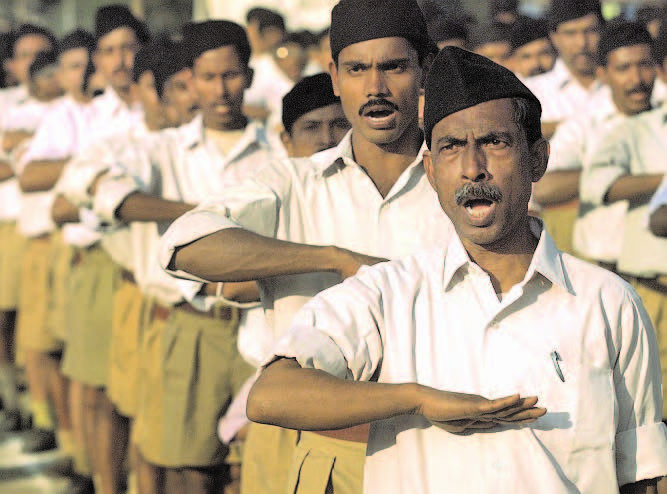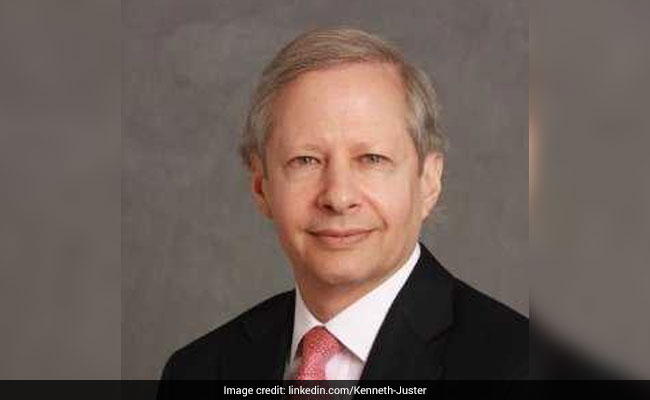
NEW DELHI (TIP): A US government panel tracking international religious freedom has said in its latest report that religious minorities in India were exposed to “derogatory” comments by leaders of the ruling BJP as well as “violent attacks and forced conversions by the RSS and VHP” since the Modi government took over last year.
It also slammed the “ghar wapsi” campaign and accused “Hindu nationalist groups” of offering monetary inducements to Muslims and Christians for converting to Hinduism but also to Hindus who carried out such
“forced” conversions.
Even as the United States Commission on International Religious Freedom (USCIRF), a federal government panel that makes policy recommendations to the US President and the Congress, welcomed Prime Minister Narendra Modi‘s February 17 statement assuring protection to the minorities as a “positive development”, it added a sting to the compliment.
The panel said his assurance was notable “given the long-standing allegations that, as chief minister of Gujarat in 2002, Modi was complicit in anti-Muslim riots in that state”. Recalling how Modi’s tourist visa was revoked by the US for “severe violations of religious freedom”, the USCIRF underlined that the Indian PM “remains the only person known to have been denied a visa based on this provision”.
The findings in the USCIRF annual report- 2015, largely based on the accounts of minority leaders and NGOs based in India, have led it to place India on its Tier 2 list of countries for the seventh year in a row.
Alleging that incidents of “religiously-motivated and communal violence” had reportedly increased for “three consecutive years”, the USCIRF report said religious minorities in India frequently accused RSS, VHP and other Hindu nationalist groups and individuals of intolerance, discrimination and violence against them. It even alleged that the local police seldom provided protection to the minorities, refusing to file complaints and rarely investigating them.
Slamming the “ghar wapsi” campaign, the USCIRF noted that Hindu nationalist groups were not only paying off Christians and Muslims to convert to Hinduism but also reportedly offering money to Hindus to convert Christians and Muslims to Hinduism.
“In December 2014, Hindu nationalist groups announced plans to forcibly reconvert at least 4,000 Christian families and 1,000 Muslim families to Hinduism in UP on Christmas Day… the Hindu groups sought to raise money… noting that it cost nearly Rs 2 lakh (nearly $3,200) per Christian and Rs 5 lakh ($8,000) per Muslim,” the report said. However, it added that domestic and international criticism led “Mohan Bhagwat, a RSS leader” to postpone the programme.
The report also referred to the alleged mass ceremony held in Agra in December last year to forcibly reconvert Muslims to Hinduism.While noting that nearly half-a-dozen states in India had laws against forced conversions, the US panel alleged these were “one-sided, only concerned about conversions away from Hinduism but not towards Hinduism”.
Also faulting India on protection of Muslims, the USCIRF report said the community had to face significant hate campaigns by Hindu nationalist groups and local and state politicians, “that includes widespread media propaganda accusing Muslims of being terrorists, spying for Pakistan, forcibly kidnapping, converting and marrying Hindu women, and disrespecting Hinduism by slaughtering cows”. The panel noted that the minority community also complained about some Indian states violating their religious freedom by banning cow slaughter, “which is required for Eid-al-Adha”. This, however, may not be true as the animal traditionally sacrificed for Eid-al-Adha in India is the goat.
Regarding the religious freedom of Sikhs, the USCIRF report claimed that Sikhs were being denied benefit of reservation available to other religious minorities and Scheduled Castes. It also alleged that Sikhs were harassed and pressured to reject religious practices such as unshorn hair and carrying of kirpan. Indian commentators, however, refute these allegations saying the Scheduled Castes among Sikhs are eligible for reservation benefit and free to follow their religious preferences.
The panel noted that prosecution and trial of communal cases was slow in India. “The Indian courts are still adjudicating cases stemming from large-scale Hindu-Muslim communal violence in Uttar Pradesh in 2013 and in Gujarat in 2002,” it said.





Be the first to comment